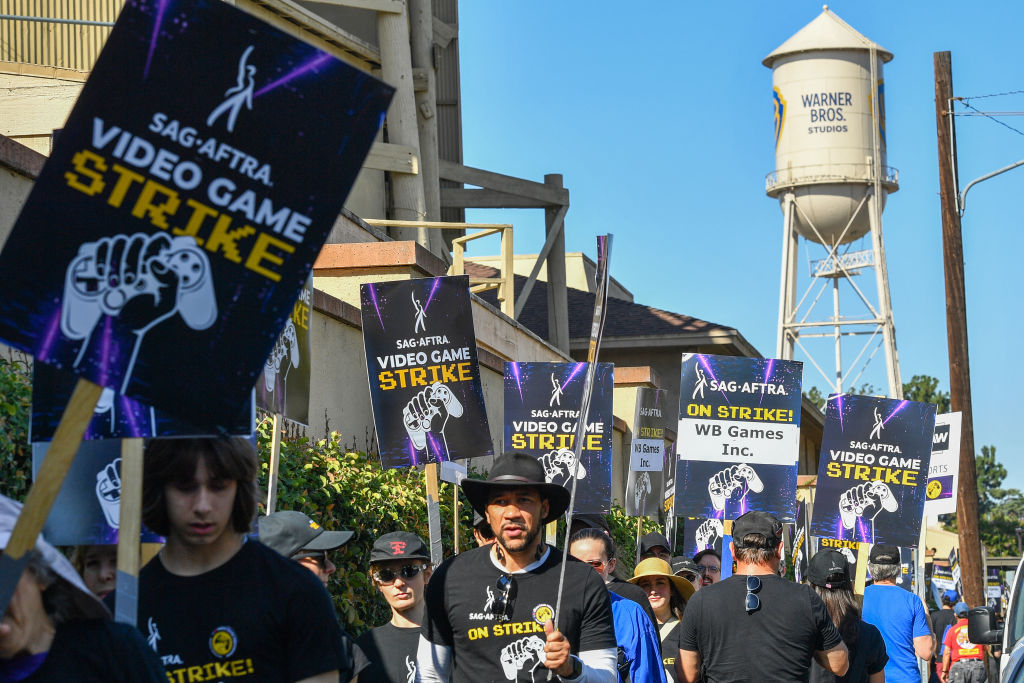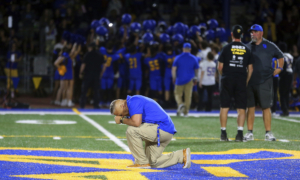California is the latest state to establish safety measures for the use of artificial intelligence (AI) in the entertainment industry.
Under a bill signed into law on Sept. 17 by Gov. Gavin Newsom, Hollywood studios must obtain explicit permission from actors and performers before using generative AI to create their “digital replicas.”
The bill, known as AB 2602, defines a digital replica as a “computer-generated, highly realistic electronic representation that is readily identifiable as the voice or visual likeness of an individual” embodied in films, TV shows, video games, sound recordings, and more, in which the actual individual either did not appear or the “fundamental character” of that appearance has been materially altered.
A second bill, AB 1836, extends the same principle to deceased performers, granting their living copyright holders the right to consent to create a digital replica for commercial use. That right expires 70 years after the performer’s death.
Newsom said the two bills, which cleared the California Legislature with near-zero opposition, strike a balance between protecting entertainment workers from potential AI misuse and fostering the rapidly evolving digital cloning technology.
“We continue to wade through uncharted territory when it comes to how AI and digital media are transforming the entertainment industry, but our North Star has always been to protect workers,” the governor said in a statement. “This legislation ensures the industry can continue thriving while strengthening protections for workers and how their likeness can or cannot be used.”
Newsom signed the bills alongside Fran Drescher, president of SAG-AFTRA, the world’s largest actors union. The union has been advocating for AI protections for over a year, particularly since its 118-day strike, during which a key issue was the studios’ use of generative AI and other digital technologies to replicate performers’ faces and voices. The strike, which started in July 2023 and lasted for almost four months, was the longest in the actors’ union’s history.
“It is a momentous day for SAG-AFTRA members and everyone else because the AI protections we fought so hard for last year are now expanded upon by California law thanks to the legislature and Governor Gavin Newsom,” Drescher said. “They say as California goes, so goes the nation!”
From the White House, President Joe Biden has issued an executive order mostly focusing on guiding federal agencies in their use of AI. The order also directs federal agencies with enforcement power to develop regulations to protect consumers from fraud, discrimination, financial risk, and privacy potentially impacted by the technology.
“Artificial intelligence and the companies that wield its possibilities are going to transform the lives of people around the world—there’s no doubt about that. But first, they must earn our trust,” Biden said in May, not long after Scarlett Johansson’s high-profile clash with OpenAI CEO Sam Altman over the use of a voice very similar to hers in the ChatGPT 4.0 system.
The use of digital replicas in movies has become increasingly common, particularly in newer installments of long-running franchises. As highlighted by the sponsors of AB 2602, the 2016 film “Rogue One: A Star Wars Story” digitally resurrected the likeness of British actor Peter Cushing, who portrayed Grand Moff Tarkin in “Star Wars: A New Hope” in 1977 and passed away in 1994 from cancer.
Meanwhile, in “Top Gun: Maverick,” a 2022 sequel to the 1986 Tom Cruise blockbuster, AI technology was used to recreate a digital version of the voice of Lt. Tom “Iceman” Kazansky, portrayed by Val Kilmer, who lost the ability to speak after undergoing throat cancer treatment in 2014.
More recently, in a callback to the original 1979 space horror classic, “Alien: Romulus” features a digital avatar of British actor Ian Holm, who portrayed synthetic android Ash. The likeness of Holm, who passed away in 2020, is used to portray another android called Rook.














